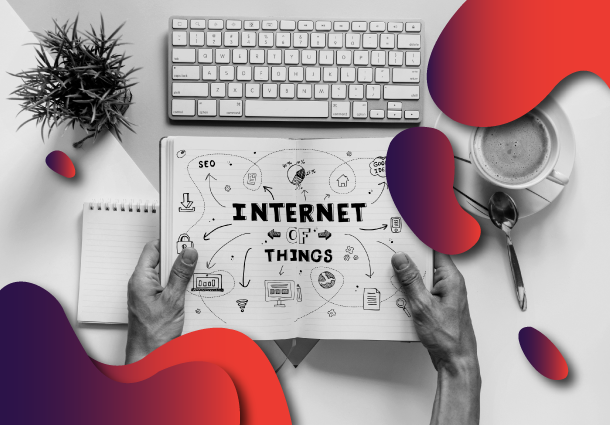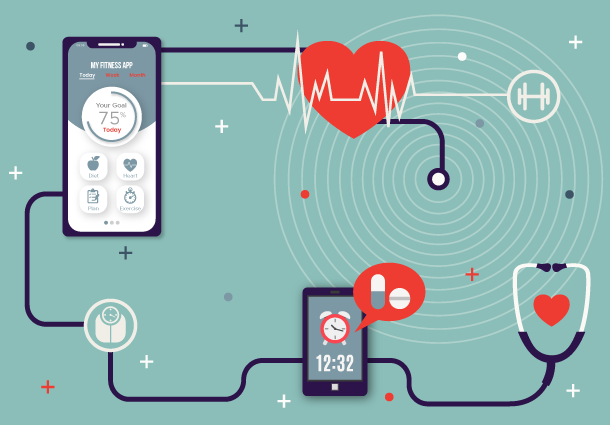Pushing the Boundaries in Healthcare Industries by Casting IoT Wearable Devices
Have you ever wondered why your fitness band or smartwatch gives you a reminder notification to drink water or asks why you are stagnant at one particular place, instead of taking a few steps? Ever posed a question, what exactly is behind the scenes? It’s IoT that has been integrated inside these wearable devices which allows you to track your steps, monitor your sleep patterns, and depict your stress levels. Indubitably, IoT in healthcare industry is chronically growing and reshaping the way doctors would traditionally approach each treatment. Nowadays, things around the habitat have become so convenient in the healthcare sector, that people are now becoming so poised to monitor and analyze basic healthcare. From examining the stress level to monitoring the heart rate everything is at the fingertips. Wearable IoT healthcare monitoring systems also allow healthcare providers to scrutinize the treatment and curate the treatment plan respectively. Furthermore, with these sensor devices, doctors can monitor the calorie count, glucose level, and other vital signs correspondingly.
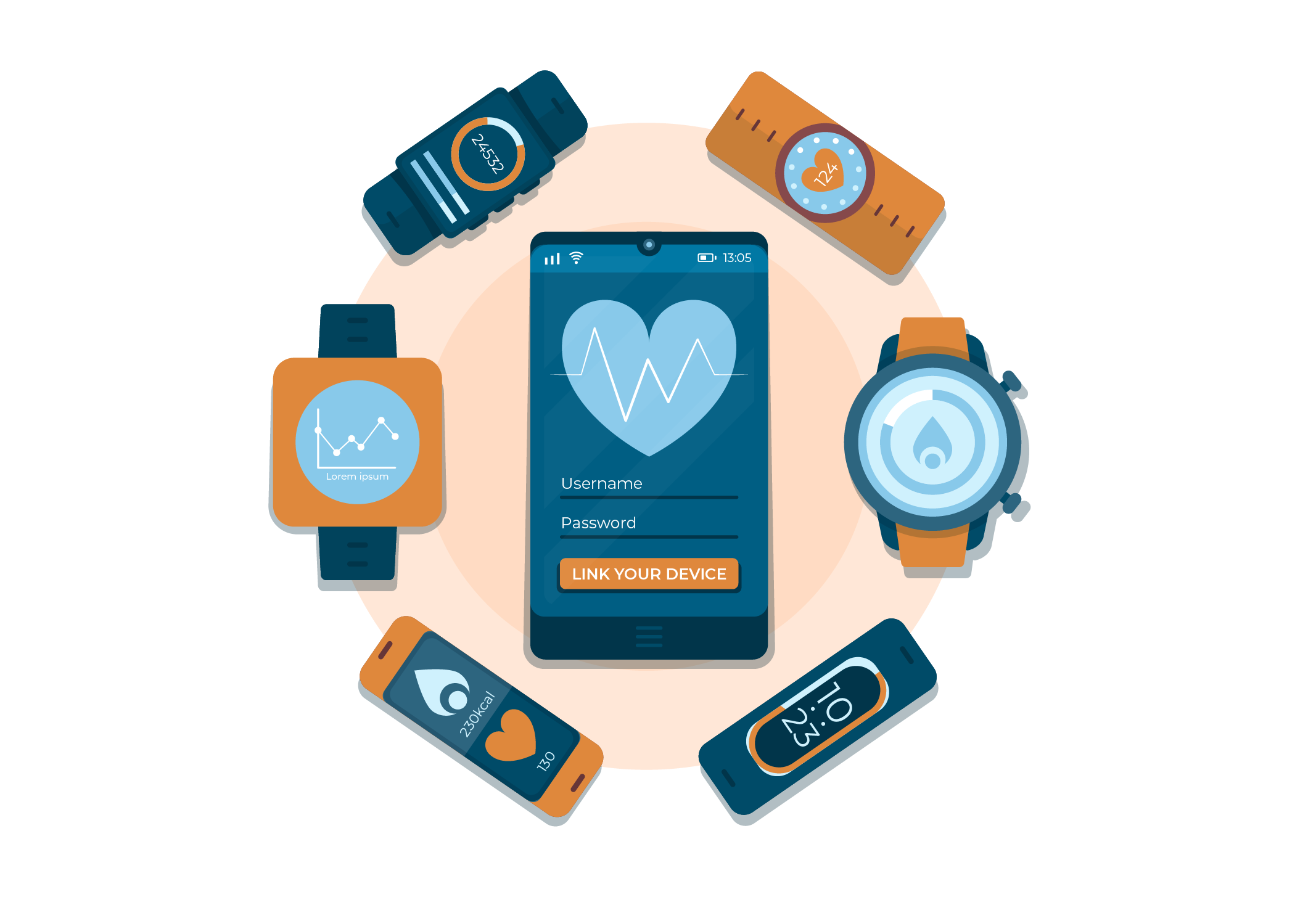
In this blog, we will demonstrate the overview of IoT wearable devices and some insights about the role and benefits of IoT wearable healthcare devices. Further, we will analyze some future trends pertinent to the Internet of Things and examine some real case studies. So without any further delay let’s board onto this journey together.
Sweeping the Synopsis of IoT Wearable in Medical Devices
Internet of Things also known as IoT is a network of physical devices, and these devices can collect, send, and store data without any requirement for any human need. With the nascency of IoT, it has given many benefits across various industries, especially in the healthcare sector. IoT is chronically gaining popularity in the globule of healthcare care. From proactively occult health issues to diagnosing and monitoring patients, IoT in the healthcare industry enhances and streamlines these benefits to compose exceptional health services. They also play a significant role in transitioning from reactive to predictive medicine, especially for chronic condition patients. Chronic patients are likely to sojourn frequently to the emergency rooms because they are likely to receive long-term treatment plans. After all, they are not being able to manage their illness, and that’s where the IoT emerges as a Marevelic Hero! By integrating IoT wearable medical devices in such situations doctors can patrol their patients and provide them with structured comprehensive healthcare.
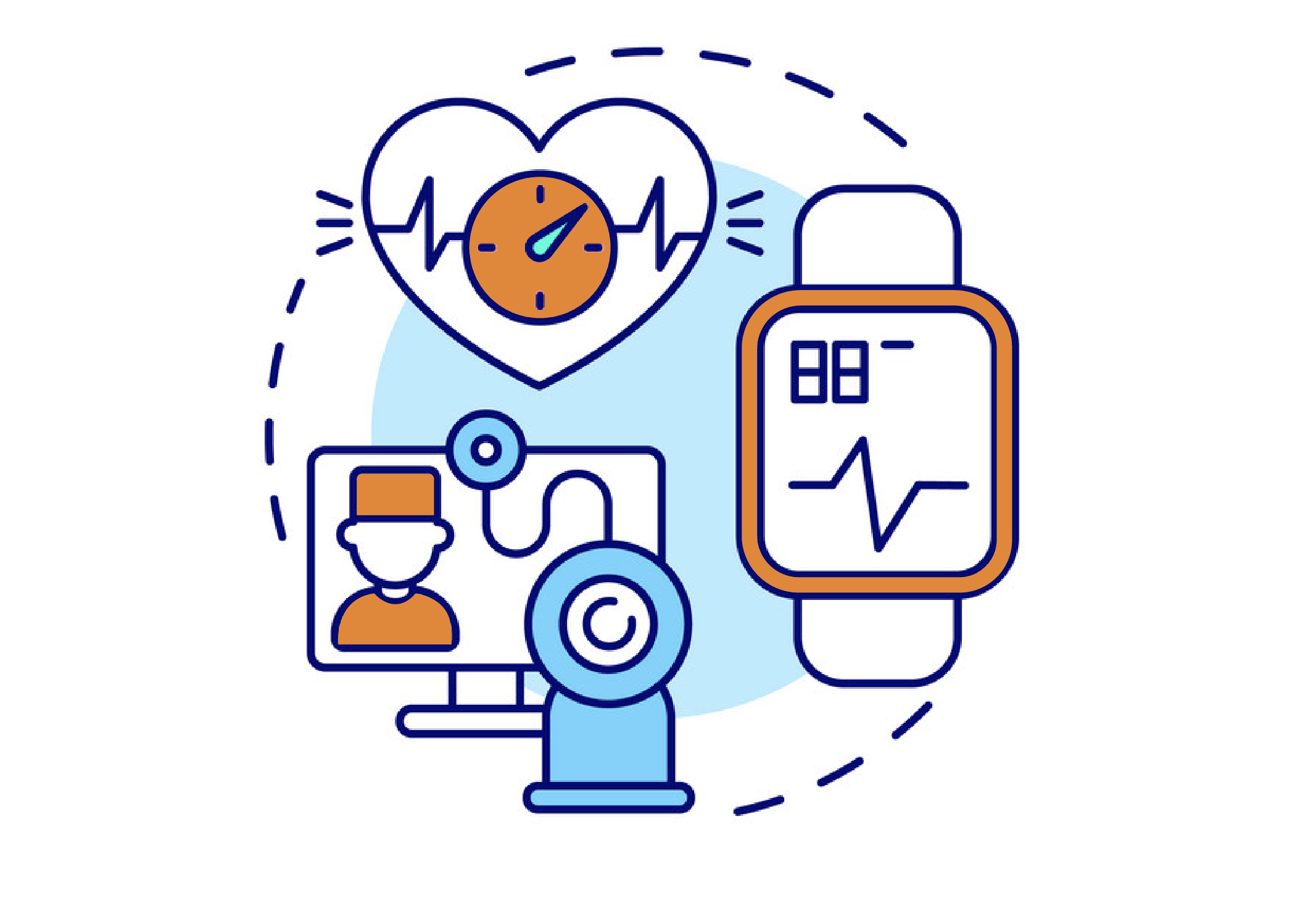
These IoT medical devices allow doctors to remotely monitor patients which allows a significant improvement in patient care and healthcare operation as a whole. The Internet of Things, no doubt, has transformed the healthcare industry in a very valuable stride. Additionally, it has also increased the patient’s engagement and vindication as interaction with doctors has become more seamless and efficient. Besides the remote monitoring of patient methodology helps in reducing the elongated stay at the hospital followed by re-admission practice. This not only minimizes the costs but also improves the treatment events.
Reimagining the Healthcare Sector by Next-Generation Medical IoT Devices
The Internet of Things has pledged to redefine everyone’s life for the better. IoT and healthcare wearables have blended and reshaped modern societies in a sterling way. Wearable devices have carved out their space in the healthcare industry and are blooming like spring flowers, resulting in great interest from consumers in monitoring their health. Typically, these devices are accessories worn by most consumers to analyze activity levels, vital statistics, and general health metrics. For personal health tracking, consider a sermon about fitness bands or trackers, the sidekicks of Homo sapiens used worldwide. These bands use sensors to record the physical activity of fellow beings, pulse rate, steps taken, and sleep patterns. Furthermore, this wearable IoT health monitoring system can be easily synced with a smartphone that acts like a nosy fitness trainer that reminds a person to drink water or questions why they haven’t moved for the past few minutes (It’s like having a personal gadget with attachment issues!). With this, we can comprehend that IoT wearable devices are highly beneficial for managing personal healthcare.
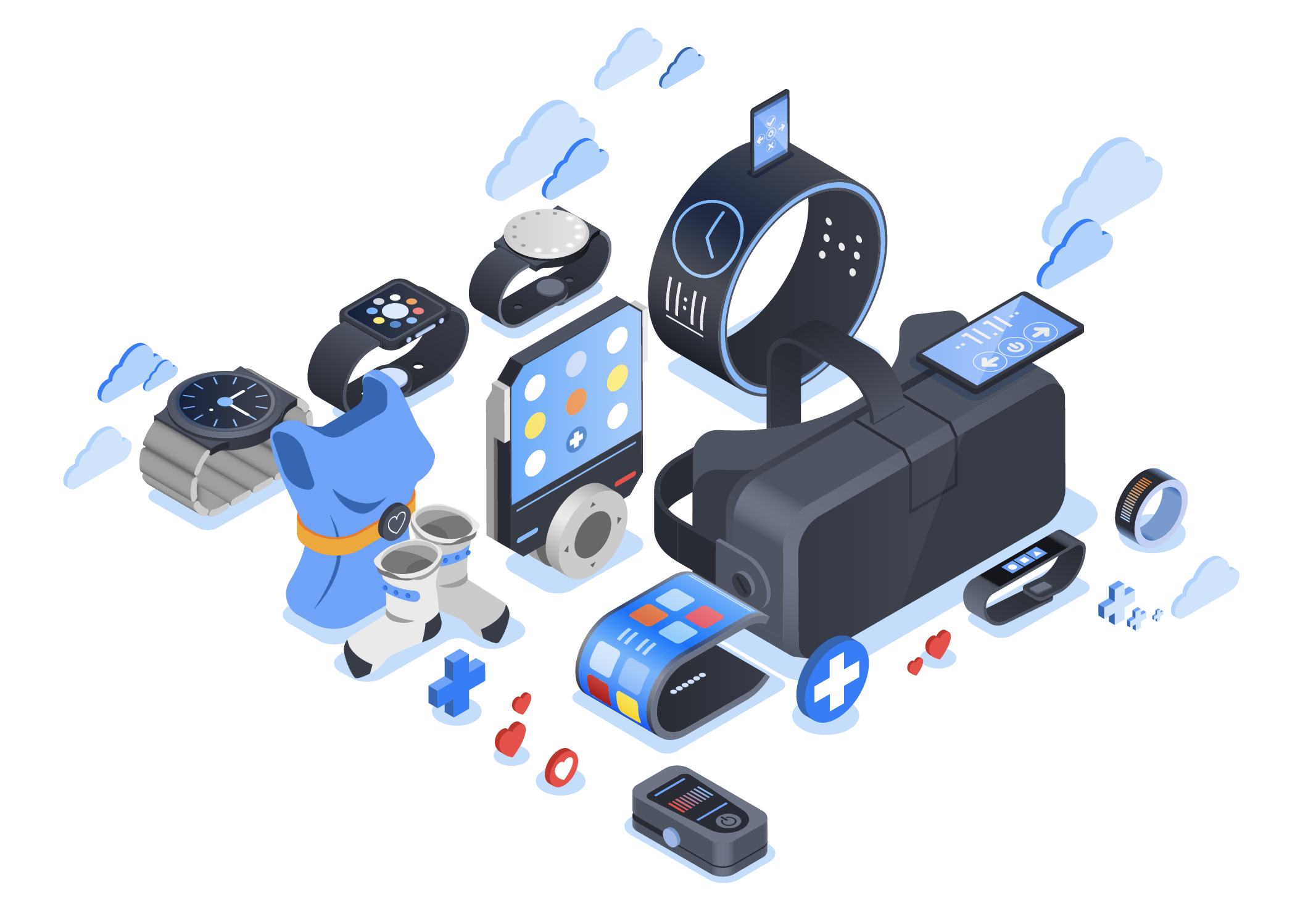
IoT is also integrated into chest straps. Such devices are generally used by people diagnosed with heart disease to monitor their cardiovascular situation. Additionally, in most situations, it is difficult to figure out an asthma attack, which can be frustrating. With intelligent asthma monitoring wearable technologies, asthma attacks and symptoms can be predicted. This predictive medicine alleviates the effects of asthma attacks. Another IoT wearable healthcare device, like fitness bands, is heart rate monitors. These devices have sensors embedded in them to detect and measure the rhythm of the heart and pulse. People with hearing disabilities use hearing aids that convert sound waves into digital signals and produce exact sounds. The IoT embedded in this machine analyzes speech and other sounds present in the environment.
Debuting the Symbiotic Role and Benefit of IoT in Healthcare Industry
The notion of IoT gyrates around connecting every device to the internet which enables them to send and collect data. In the healthcare sector, the Internet of Things encircles an enormous number of devices and sensors, which include fitness trackers, smartwatches, and medical sensors. The role of IoT in wearable devices enables healthcare platform companies to lift the progress towards reducing the cost. Furthermore, it also enables continuous monitoring of patient’s vital signs and health metrics and assembles real-time data. These data serve as a pivotal source of information for diagnosis, curating personalized treatment care, and prevention. Wearable IoT health monitoring systems collect a large amount of data that helps doctors and physicians improve their performance and analyze health data remotely.
When connected to the cloud, IoT devices provide real-time insight and also allow remote care. These remote care monitoring devices and IoT applications help patients by regularly providing notifications for medications they are consuming. Moreover, wearable devices can track vital patient data, and based on the collected data these smart IoT wearable devices send them real-time reminders for pills based on glucose level or blood pressure level. Moreover, healthcare devices using IoT can even help with self-diagnosis. It provides patients with a feature to self-diagnose their health conditions, hence this reduces hospital costs. Also, this collected data can further provide the right observation to make informed decisions about a certain treatment based on the data. This saves a lot of time and also minimizes the cost spent on payment for on-site healthcare services.
The added benefit of IoT in healthcare industry is primarily to facilitate the processes. Employing IoT technology, helps doctors monitor the patient’s health, and in some IoT wearable devices, it sends the message to other IoT devices for additional analysis. With the influx of IoT wearable healthcare devices, doctors can monitor the heart rate of the patient, calorie count, and other vital signs. This information also helps the doctor to manage their patient’s health and curate the treatment plans accordingly.
Trenchant Some Metamorphic Real-time Application of IoT Wearables
In the healthcare industry, IoT wearable medical devices revolutionize patient care and management. Nowadays all the applications in mobile devices can be connected to wearable devices to remotely monitor patients with chronic illness. A popular case by Philips that outcast a study on how their wearable biosensor technology allows monitoring of patients with chronic conditions like congestive heart failure etc.
Additionally, IoT Wearable sensors can also detect irregular heart rates, glucose levels, and more distortion. One such case study from Samsung depicts that they have designed a smartwatch with an in-built feature for detection failure to provide early warning before it can cause any serious health issues.
In medication management, IoT has been embedded in the pill dispensers to ensure that patients take their medication as prescribed by doctors or physicians. Research conducted by MC10 Inc. and the University of Rochester Medical Centre surveyed that patients were suggested to wear a small patch to monitor their medicine intake which eventually led to the adherence to medication schedule.
Elucidating the Futuristic Direction of Wearable and IoT in Healthcare Industry
The combination of wearable devices and IoT has cognate as a dynamic tool in the healthcare industry. In upcoming years wearables will also detect a wide range of health conditions accurately. This will lead to more demand in healthcare organizations that can curve a large amount of patient data into actionable insights. Furthermore, in terms of artificial intelligence, it will be up to infer deeper insight from the data generated by IoT wearable devices. This will entirely change the methods and the way doctors approach diagnostics and detect diseases. One of the major factors of AI in diagnostic provinces is the ability to analyze the patient’s health. Moreover, wearables will also smoothly integrate with the telemedicine podium, which will allow the healthcare provider to remotely access the patient’s health and fine-tune the treatment plans accordingly.
In implant devices, it will become more versatile which will offer long-term tracking and delivery of treatment for chronic patients. IoT wearables are not only subjected to advanced diagnostic or telemedicine platforms but also for mental health. This will also focus on mental health, with IoT devices it will be capable of monitoring sleep quality, strain level, and emotional well-being, which facilitate the early detection of mental health issues.
A Shrewd Choice for IoT Wearable with Pattem Digital by Applauding IoT
In summary, the implementation of IoT wearable devices in the healthcare sector adds a significant improvement in patient health management and treatment. From remotely monitoring patients to early detection of health issues, IoT devices have demonstrated their potency in healthcare, followed by reducing costs and enhancing patient engagement. Additionally, in the upcoming years, Artificial Intelligence will enable deep insights from the wide range of data collected by IoT devices, revolutionizing diagnostics and disease detection. Furthermore moving ahead the future of IoT wearables in healthcare holds immense potential for further innovation and transformation.
As we set out on this transformative path in healthcare, it’s essential to acknowledge the significant role that companies like Pattem Digital play that stand as IoT development company. With expertise in digital transformation and software development, we are leading the way in innovating IoT wearable technology for healthcare applications.




